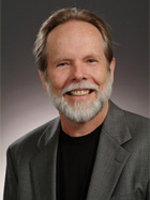- By Research Area
- By University
Directory
Faculty
Directory Details
[Return to Previous Listing]
Mark Brown
Associate Professor, Environmental Engineering, University of Florida
Phone: (352) 392-2309
PO Box 116450 Gainesville, FL 32611-6450
http://www.ees.ufl.edu/homepp/brown/
Education:
Ph.D., Environmental Engineering Sciences, University of Florida, 1980
Research Interests:
For the past 25 years our research group has been developing theories and methods of evaluation applied to coupled human and environmental systems using EMERGY. The importance of these methods to environmental policy and sustainability initiatives relates to valuing natural resources and the unmonied contributions of the environment to the economy as well as recognizing the inherent differences in quality associated with different forms of energy. Current and past research includes applied and theoretical research at the interface of energy, environment, and economics. Our research has focused on evaluation of energy resources and energy transformation processes, as well as national, international and global issues of sustainability in more than 50 funded research projects during the past 25 years. This research has lead to a better understanding of the role of energy, materials and natural resource flows in economies and provided insight into resource management issues and assessments of a myriad of development alternatives around the globe. Collaborating with scientists from Italy, Venezuela, Brazil, and Sweden, comparative emergy evaluations have been conducted on energy production systems of hydroelectric power, oil, wind generation, geothermal systems, coal, biomass, and wood. These energy systems were evaluated for their efficiencies, CO2 generation, productivity, and net energy benefits as well as sustainability. We have evaluated life cycles of materials and recycling, within the construction sector and waste management options for household refuse. We have developed new theories for quantifying the contributions of environmental work, technological processes and the work of humans in common units, making possible scientific-based decisions on environmental and economic alternatives. Current and past projects include the evaluation of ecosystem services and natural capital in Florida ecosystems; the economic and environmental costs and benefits of different water supply alternatives for public water supply in Florida; the costs and benefits of reclamation of oil spills in Venezuela and Valdez, Alaska; and costs and benefits of eco-tourism.














